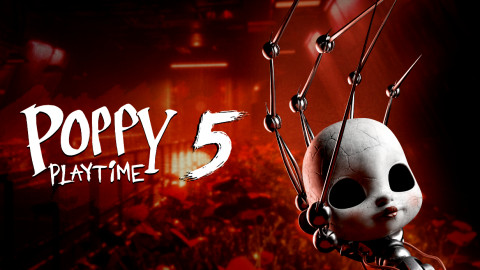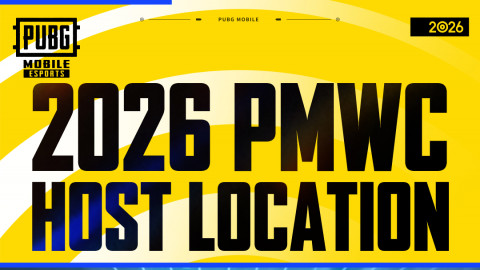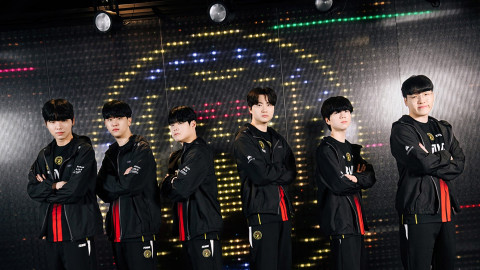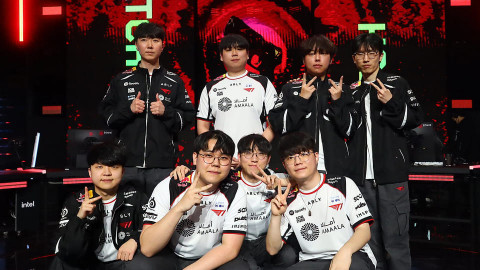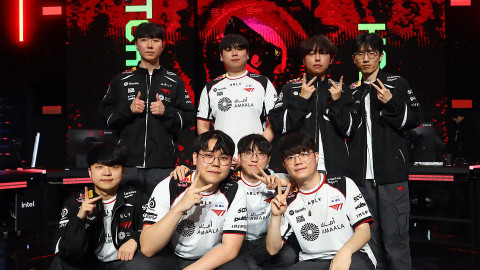
Few talent still working in North American League of Legends have seen more than James "Dash" Patterson. As the most experienced host working NAm the man has been a beloved staple on the LCS broadcast for years. Just recently, Dash experienced one of his favorite events in LCS history — Evil Geniuses winning the 2022 LCS Spring Split at NRG Stadium. Few events in NA have surpassed the storylines and grandeur of that finals. In Inven Global’s two-part interview with Dash, he discusses his thoughts of the event and how it impacts the LCS.
Before we get into MSI stuff, I needed to ask considering how enthusiastic you were about it: where does the last LCS Championship rank in terms of North American events in your career?
The only one that I, for sure, put above it is 2015 Summer: Madison Square Garden with CLG over TSM. This is all very personal, but it was very early on in my career. And because of where it was, it was an event that took me back to New York (where I'd spent four years for college) into one of the most historic and greatest arenas in the country.
As well as sporting at the time the biggest rivalry in the LCS — between CLG and TSM, being the first victory for CLG. And that in part being Doublelift and Aphromoo to overcome TSM. Then you follow it all up with the post-series interview, which for me is still one of the highlight interviews of my career. I stepped on stage, everybody's lined up kind of next to me, and then HotshotGG just starts bawling. I didn't do anything for that interview at all, but it was just such a phenomenal moment. And you saw all of this raw emotion and passion flood out of this man's body who had been pushing for it for so long. So there's something about that 2015 MSG event that might still sit above the rest for me.
But barring that one it very well might be — as a whole event and as a broadcast — next on my list. Part of that might be due to the fact that we're coming out of COVID, and it's the first live event in a long time. So there is something extraordinarily refreshing about returning to that. But then also all the narratives that go along with this win around Danny and jojopyun — not to forget Vulcun as a native North American talent, he's just a veteran at this point.
To watch those guys and their narratives take hold here in North America, see the rallying of the fans in Texas around that team and those players, and see the excitement generated for the LCS not just on the domestic stage but on the international stage as well — it was all really wonderful.
I thought the broadcast team did an incredible job with this arena. They used the space so intelligently: splitting it in two to have the Fan Fest on one side, and you get that activity and hype generating within the arena from an earlier point. As opposed to it being outside at other venues where it feels very separate from the event itself. I thought the set design was spectacular, with the last-minute decision to put the casters up into that nest in the set, which most of them said was the coolest setup they've ever cast on in their lives. So there are a whole lot of things that go with it, but it probably still ranks number two for me personally, because of what that 2015 Summer Championship was.

It's interesting you mention that particular final. With people like Doublelift and Reginald (coach) with TSM at the time, there was a lot of personality in that final. That's what makes this EG team so interesting is how willing they are to talk trash. Do you think that's something that's been missing from the LCS?
100%. It is something that we've been missing. You mentioned Doublelift — he was kind of the one-man army within the LCS as a villain to a lot of people. Obviously, he had lots of fans as well, but if you were a fan of Doublelift, you were a fan likely because of his trash talk. Because of his willingness to be the villain, and throw big, bold statements out there. Sometimes he lives up to them, and sometimes he doesn't. You can't just throw around a bunch of trash talk and never live up to it.
So it definitely helps that jojopyun and Danny (Danny only until that interview in the finals) are able to back it up, and I think very healthy for the league. So absolutely it's something we've been missing. I'm glad to have it back. I think it will serve the league very well, and hopefully is a little bit of a roadmap for a lot of other up-and-coming players.
I'll go back to Danny and jojopyun. Danny is this sweet, kind, and respectful player in a number of ways. Then he'll show you that edge when he needs to in those couple of moments, and that's very exciting. Jojopyun is just a little bit more brash. He's a little bit more in your face. He's a little bit more outspoken, loud, and cocky (for lack of a better word). And I don't use that term negatively either.

But the two of them are great examples to young up-and-coming pros that the most important thing is that you carve out a very distinct identity. It doesn't have to be a negative identity. I don't think that jojopyun even in his trash talk is very negative. He's not necessarily letting loose the fire and the flames. Danny, on the other hand, is much quieter and more reserved. But he owns himself entirely. And people become fans of people who are uniquely their own and authentic on the broadcast.
So I hope that's more the lesson that people take. What I actually hope doesn't happen, is I don't want everyone to go out there and just try and be a trash-talker now. I also don't think that that's the answer. I don't think that's a very exciting league. You need to have all kinds of personalities across the map. And the most important thing is that those personalities are authentic. And EG is very much that. I'll include that Impact is very much authentically himself, which is why I think he has so many fans. CoreJJ, right? He trash- talks and he has fun, but he's also one that's wanted to push talent development in North America — something where most of the fandom around him came from. The fact that he's building up players around him and looking to make the region better is what has galvanized a fan base around him.
Why is this happening now? Why did it seem that that culture was pretty absent from the league for some time?
That's a confluence of many things (and these are in no particular order and have no particular weighting to them). Number one: everyone (the teams and Riot) could have done more in the past to make players aware of how important branding is. Especially when you take a look at a sport that has a demographic as young as it does, particularly when you're looking at prospective pros. But you can even draw comparisons to traditional sports.
It is so hugely important to be socially active and engaged with your audience, fans, and the community around the league that you're in — be it basketball or League of Legends. And I don't think for a period of time it was made very clear to up-and-comers how important that kind of stuff can be to the longevity of their careers. When I was young (using myself as a competitor as an example), I always thought that all that mattered is how good I am.
And to a degree, if you're that good, it will be all that matters. If you're the GOAT, then I guess you can never tweet and people will still pay attention to you. But if you're not the GOAT, then you have to find a way to remain relevant and to build fan bases behind yourself. So there was just a gap of understanding of how important that kind of stuff is within the new developing ecosystem.

Number two: part of this is a product of the era. The Wild West of social media a decade ago is definitely different than nowadays. To a degree, we've seen people change their relationships with social media based on how cultures around the world have changed their relationships with social media. There's an understanding now that what I say is saved in perpetuity on the internet.
I'm a person who shies away from conflict on social media, so I'm probably not the best authority to be talking about trash talk since you'll rarely ever see me engaged in it. But I do think it's one of those things where I definitely have some fear in my relationship with social media of how things I say will be taken, perceived, and saved in perpetuity. So generally, there's this political correctness that people want to try and adhere to so that they don't misstep. And sometimes I think that that can hamper authenticity, as people self-edit before they put something out into the world.
I think we've all typed out a Tweet and then thought better of it. Sometimes that is for the best, and then other times, it's like, "You probably could have tweeted that, and that would have been totally okay." You just let the fear get to you a little bit about any kind of potential backlash. So that's one piece of it.
The other piece of all this is there's the aspect of how our community has interacted with pros who have been big personalities on things like social media. So another example: it was a risk — and I'm sure jojopyun's already gonna get memed for it (I haven't been on social media much) — for him to say that they're going to shit on EU at MSI. If they lose all four of their games against G2, you better believe that interview clip is going to get put into every single meme. And he's probably going to get berated by EU fans and maybe even NA fans alike for the underdelivering of that promise.
So over time, when you consider specifically how LCS has performed, it is a lot more difficult for players in this region (at least on a grander scale) to be that outspoken. It's a lot easier for somebody in Europe to be outspoken when their region at least made it to World Finals and had more success recently. So it's a confluence of things, those are just three things that have immediately popped into my head.
But yeah, media training is something I don't think is done enough for any of the players or teams. I don't think that team content has leveled up to the degree that it really should be to properly showcase players, and more investment needs to be made there. The same could be said about our broadcast — as we want to continue to try a major goal of ours to build heroes of the LCS. With Doublelift, we lost one of those main stars. We need to backfill those positions in our story. And that's another part of it, too. So everybody has a hand in rectifying that, but those are just some thoughts.
It's something I've seen a lot of variance in opinions recently — especially with how impactful it is on LCS viewership. What do you think is more important for NA growth: to show better results in international competition, or to have a more personality-driven league?
Unfortunately — I don't know if this would be seen as a cop-out — but it has to be both. Because sport is inherently competition. And so, in fact, I could probably argue that that is still the more important part. Nobody wants to watch sports that are not competitive — or very few people do. I guess I can't speak in absolutes. But both the competitiveness of our region domestically as well as when we move to the international stage does matter.
That said, from my perspective, that's not a lever that I can really affect. So yes, our teams need to get better. And that is up to them to figure out, and it's up to Riot and the LCS as an entity to try and facilitate and help. Things like Champions Queue talent development within North America — those are all important steps and should continue to be pursued. Those are things that I don't really have a hand in, so I won't speak on too much.

Where I have more of a hand is in that second piece you're talking about, which is personality. So again, there are the two kind of buckets that you think about when you think personality. You think of the personality of the players and the teams themselves, and then you think about the personality of the broadcast. And that is where we could make leaps and bounds in both buckets.
With the teams and the players — we already touched on that with the last question. Teams need players to go through media training and be aware of branding. Likewise for the LCS, we need to start figuring out who those personalities that we want to highlight are. It's about seeking out and finding those personalities within the league that we think have a lot to give in that area and to start utilizing them. We've done some of that.
Again, this is not to say that we're not doing it — things like bring "Bring Your Pro to Work Day" are great examples of bringing in players like Closer and Danny, and giving them a two-minute clip to showcase some personality that's outside of being on the stage competing. People need to see that — we need to look for more opportunities to do that on and off the broadcast. I would love to see more content made with the broadcast team and the players and to see our broadcast start to talk more about the narratives and the storylines of the players. We don't necessarily always need an analytical approach to things. We do a lot of this stuff already — it's about doing it more.

The final bucket is the personality of the broadcast itself. The players obviously have loaded schedules. This is something that I've talked about before: the LEC did really well in their rebrand. They indexed into the personalities that are consistent, which are their broadcast team. So they started making all of their sponsor content by using Kia commercials and KitKat. Everything was made with the talent of the broadcast out in front, to showcase and build up those personalities.To build inside jokes and establish relationships between them, so that people were enthused to watch that set of people on the analyst desk talk about the game.
It's something that we did really well I think prior to all the way up to 2019. We didn't do it very well basically 2019 through 2021. This year. there was a big reinvestment into that. The team led by Asa Donat has done a really phenomenal job in just the first split to get a lot of the content out there. They've got some really huge ideas moving forward, and it seems like the case study of spring has proven what we thought in its value, and it'll start getting invested in more.
Part 2 of our talk with Dash will be released Thursday, June 2.
-

I write. I rap. I run. That’s pretty much it.
Sort by:
Comments :0

